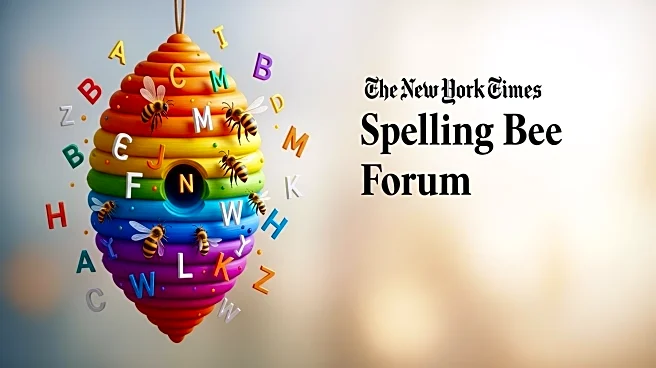What's Happening?
The New York Times has launched a Spelling Bee forum, inviting readers to engage in solving puzzles and sharing tips. The forum is part of the newspaper's broader initiative to enhance reader interaction through games like Crosswords and The Mini. Participants can access hints, discussions, and creative content from fellow solvers, fostering a community around the popular Spelling Bee game. The forum also includes a glossary of terms compiled by a Times reader, Monicat, to assist players in navigating the game.
Why It's Important?
The introduction of the Spelling Bee forum by The New York Times highlights the growing trend of media outlets leveraging interactive content to boost reader engagement. By creating a space for puzzle enthusiasts to connect, the Times is tapping into the increasing demand for participatory and community-driven content. This move could enhance subscriber retention and attract new audiences interested in interactive and educational activities. It reflects a broader shift in the media industry towards integrating gamification and community-building strategies to maintain relevance in a digital age.
What's Next?
The New York Times may continue to expand its interactive offerings, potentially introducing new games or enhancing existing ones to further engage its audience. As the forum gains traction, the newspaper might explore additional features or collaborations with puzzle creators to enrich the user experience. The success of this initiative could prompt other media organizations to adopt similar strategies, fostering a competitive environment in the realm of interactive content.
Beyond the Headlines
The Spelling Bee forum not only serves as a platform for entertainment but also encourages cognitive engagement and skill development among participants. It underscores the educational potential of games in media, offering readers a chance to improve vocabulary and problem-solving abilities. This initiative may also contribute to a sense of community among readers, fostering connections and shared experiences through collaborative puzzle-solving.








